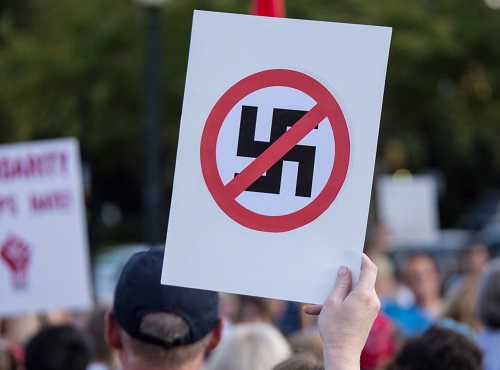
The violent reaction to President Trump’s Phoenix rally and the ongoing fallout over Charlottesville show the issue of the Alt-Right, and its Antifa antagonists, is going nowhere. Americans struggle to understand what kind of “conservatism” the Alt-Right represents, as well as the nature of the protesters.
A prominent European commentator has noted that both movements have attempted to infiltrate broader and more popular movements – against racism or in favor of free speech, respectively – in order to camouflage their extremist agendas and appeal to the broadest possible audience.
Both have their origins in identity politics, which expresses itself in philosophical and economic collectivism. And both have a ready recourse to violence.
Daniel Hannan, a Member of European Parliament (MEP) for South East England and proprietor of The Conservative, wrote in the International Business Times this week:
The anarchists don’t present themselves as opponents of American democracy, but as enemies of fascism, hence the name they go by: “antifa.” It’s an odd name for people who want to ban books, tear down cultural monuments they dislike and categorise everyone by race, but there we are.
The two groups have much in common, both in their tactics and in their genesis in identity politics:
Eventually, identity politics were bound to infect some angry white people, too. … It works both ways. The alt-right are able to pose as defenders of freedom against a movement that wants to shut down all dissent. The ctrl-left claim to stand for the pluralism of the Republic … In fact, both sides are illiberal, anti-democratic and thus, in the truest sense, anti-American.
Hannan has made a similar assessment of the UK’s own minuscule fascist movement, the British National Party. He denounced “the far-Left cocktail of protectionism, and nationalization, and republicanism, and the other parts of the BNP agenda.”
Since the UK has “a civic rather than an ethnic conception of nationhood,” he said, when we discuss the BNP, “we are talking about a party here that is fundamentally anti-British.”
Both the fascist “Right” and collectivist Left oppose the classical Western consensus of society. Culture grew organically from the choices of the individual, the family unit, and social and community organizations – not the least of which was the Church. The government protected the inalienable rights of its citizens and accrued only such money and power as may be necessary to protect them from foreign invasion or domestic tumult. Otherwise, it enshrined the freedom of religion, respected conscience, and encouraged the free spread of commerce by viewing the right to own private property, in John Adams’ phrase, “as sacred as the law of God.”
Both fascists and socialists see the individual as hopelessly captive to impersonal forces, whether economic circumstance or “blood.” Both subordinate individual rights, and the human person himself, to the mechanisms of the State which alone can bring the collective to its destiny. Both fascism and socialism require wealth confiscation and redistribution as a means of coercion, punishment and, above all, control. Without private property, or other means of self-defense, the citizenry is at the mercy of its rulers. Once the State has claimed economic power over its citizens, it may impose socialism, or fascism, or any other twisted ideology that inspires its leaders.
The classical economist Friedrich von Hayek understood this process, writing that “the rise of fascism and naziism was not a reaction against the socialist trends of the preceding period but a necessary outcome of those tendencies.”
His description of the clash between Nazis and Communists in the interwar period seems to presage Charlottesville:
The conflict between the Fascist or National Socialist and the older socialist parties must, indeed, very largely be regarded as the kind of conflict which is bound to arise between rival socialist factions. There was no difference between them about the question of its being the will of the state which should assign to each person his proper place in society.
For now, Hannan writes, the Alt-Right and Antifa Left will continue to bedevil one another, snarl traffic, and occasionally injure policemen and innocent bystanders. Thus, transatlantic observers must have a clear-eyed assessment of their true motives and aspirations, not just their professed stances.
The answer is a reassertion of Western, classical liberal values, which rebuke both extremist ideologies (and their methods). Facing the juggernaut of the Alt-Right and the antifa Left, Hannan writes, “American democracy could do with a ctrl-alt-del.”
(Photo credit: Mark Dixon. This photo has been cropped. CC 2.0.)

